In an article, published in Today’s Zalman (april 26, 2010), it’s stated that Ankara is relieved but not satisfied after Obama’s April 24 message about the Armenian Genocide. Read the rest of the article below.
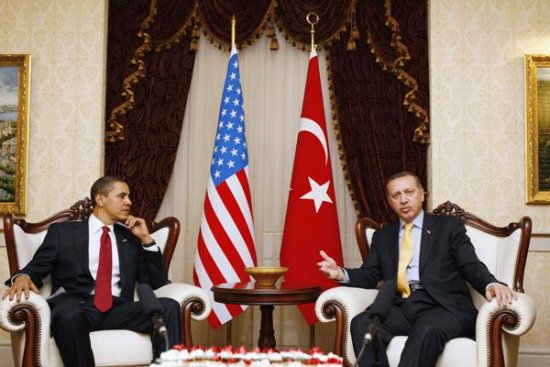
The decision not to use the word 'genocide' is both a result of Obama's desire not to harm efforts by Turkey and Armenia to normalize relations after a 15-year hiatus and a recognition of Turkey's importance as a US partner in achieving several foreign policy goals in the region. Armenian-American groups, which heavily campaigned for Obama's endorsement of the genocide claims, expressed deep disappointment, saying, "The president chose to allow our nation's stand against genocide to remain a hostage to Turkey's threats." Turkey is a key partner for the US administration in achieving many key US foreign policy goals, ranging from Iran's nuclear program to the stabilization of Afghanistan. Many have expressed concern that any reference to the g-word in the April 24 message would cause a road accident in the Turkish-US cooperation to achieve the mutual foreign policy goals and could come as a setback to Turkish-Armenian efforts to normalize relations. (Turkishweekly).
US President Barack Obama declined, for a second time, to use the word “genocide” to describe the atrocities experienced by Armenians at the hands of the Ottoman Empire a century ago.
The widely anticipated move was a relief to Ankara, which has repeatedly warned that endorsement of the genocide claims by the US administration would irreparably harm ties, but the way Obama described the historic event also rattled Turkish policy-makers. Obama, who repeatedly promised to call the 1915 events “genocide” when he was a candidate for president, also disappointed Armenians, who have been pressing him to keep his campaign promise.
As was the case in April 2009, Obama used instead the Armenian phrase Meds Yeghern, or Great Calamity, to mark the 95th anniversary of the start of the mass killings and deportations… In a January 2008 statement to the Armenian community in the United States, Obama, then a presidential candidate, called the Armenian genocide “a widely documented fact supported by an overwhelming body of historical evidence.” “America deserves a leader who speaks truthfully about the Armenian genocide and responds forcefully to all genocides. I intend to be that president,” he said at the time… Obama backpedaled on that pledge after taking office, anxious not to antagonize Turkey, a key U.S. ally. In his April 2009 statement on Armenian Remembrance Day, Obama implicitly cited the need not to undermine the U.S.-backed rapprochement between Armenia and Turkey. (armtown, april 24, 2010; Emil Danielyan).
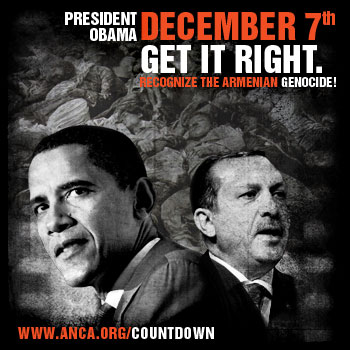
The month-long Armenian American grassroots campaign to encourage President Obama to personally confront Turkey’s Prime Minister with the facts of the Armenian Genocide during their December 7th White House meeting, the Armenian National Committee of America’s (ANCA) “Countdown to Erdogan” has come under heavy fire from a Turkish lobby that appears increasingly nervous about the impact that Ankara’s growing rift with Washington will have on U.S. complicity in its genocide denial campaign. In a memo to Members of Congress, the Turkish Coalition of America (TCA) sharply attacked the “Countdown to Erdogan” campaign, using words such as “blitzkrieg,” “radical,” and “hatemongering” to describe the ANCA’s grassroots civic activism. (Asbarez.com).
The US president says his personal view — referring to earlier statements that the killings of Armenians in eastern Anatolia did constitute genocide — has not changed since he became president but he wants to focus on a process of normalization between Turkey and Armenia instead of on history.
Turkey denies that the events amount to genocide and says many Turks were also killed by Armenian gangs revolting against the Ottoman Empire in an attempt to create an independent Armenian state in eastern Anatolia in collaboration with the Russian army.
“On this solemn day of remembrance, we pause to recall that ninety-five years ago one of the worst atrocities of the 20th century began. In that dark moment of history, 1.5 million Armenians were massacred or marched to their death in the final days of the Ottoman Empire,” Obama said in his message on April 24, the day when Armenians claim a systematic genocide campaign began. “Today is a day to reflect upon and draw lessons from these terrible events. I have consistently stated my own view of what occurred in 1915, and my view of that history has not changed. It is in all of our interest to see the achievement a full, frank and just acknowledgment of the facts. The Meds Yeghern is a devastating chapter in the history of the Armenian people, and we must keep its memory alive in honor of those who were murdered and so that we do not repeat the grave mistakes of the past.”
Presidents of the US issue statements each year on April 24, but Obama’s statement this year was different from the previous ones because he mentioned the Turks who saved Armenians in 1915.
“I salute the Turks who saved Armenians in 1915 and am encouraged by the dialogue among Turks and Armenians, and within Turkey itself, regarding this painful history. Together, the Turkish and Armenian people will be stronger as they acknowledge their common history and recognize their common humanity,” Obama stated.
In Ankara, reactions were mixed. Prime Minister Recep Tayyip Erdoğan (in contrast with 2009) appeared to welcome the statement, saying on Saturday that
“Turkey’s sensitivities have been observed” and that Obama’s refusal to call the 1915 events “genocide” was due to the diplomatic efforts of Turkey.
In 2009, Erdogan stated after Obama’s 24 april message, “We regard the statement concerning the 1915 events as an interpretation of history that does not reflect the truth and is thus unacceptable.”
“We are saddened that the issue is being persistently exploited and many politicians are trying to win votes out of the controversy over the 1915 events” he added… “Turkey is not a country that can be flattered and then fooled.”
Turkish PM Erdogan said history should not be a tool to attain domestic political goals and insisted that historical questions should be left to historians. “Turkish-Armenian relations will be normalized, historical matters will be enlightened and the road will be paved for peace if countries that have nothing to do with the issue stop getting involved,” he told a meeting of his Justice and Development Party; (turkishweekly, april 27, 2009).
This time the Foreign Ministry, in a written statement, called Obama’s statement an “incorrect and one-sided political perception.”
“We deeply regret this statement which reflects an incorrect and one-sided political perception. The toughest enemy of the historical facts is subjective memory records. No nation has the right to impose its memory records on another nation,” the Foreign Ministry statement indicated.
The statement further added that “third counties have neither the right nor the authority to judge the history of Turkish-Armenian relations with political motives.” (april 24, 2010)
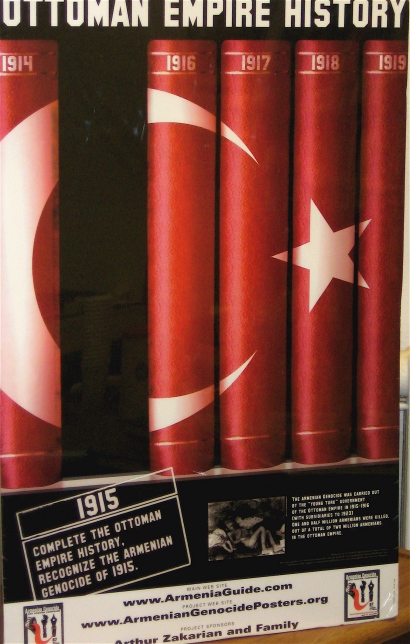
In the years following the mass killing of the Armenians, the world seemed to forget about the genocide. This Armenian genocide denial would soon encourage another dictator, in justifying his own murderous holocaust by him saying, “Who still speaks of the extermination of the Armenians?” - Adolf Hitler
The opposition parties, which object to the government’s efforts to restore relations with Armenia, were also unhappy with the statement. Onur Öymen, the deputy chairman of the main opposition Republican People’s Party (CHP), said the use of the term “Meds Yeghern” was no different from using the word “genocide,” while Nationalist Movement Party (MHP) leader Devlet Bahçeli called Obama’s terminology a “play of words” that meant his accusations against the Turkish nation remained in place. Bahçeli also accused Erdoğan of sharing the same position as the Armenian diaspora by welcoming Obama’s statement and reiterated his call for the withdrawal of two protocols signed by Turkey and Armenia on normalizing bilateral relations.
Turkish Foreign Minister Ahmet Davutoğlu criticized Obama’s statement and said that it was “unacceptable.”
“If we are going to share grief for humanitarian reasons, then we would expect respect for our own grief as well,” Davutoğlu said.
The Turkish Coalition of America also said Obama’s statement did not address “the equally tragic loss of Muslim lives in this turbulent period of Ottoman history.”
“Where does the ethnic cleansing of Ottoman Turks from the Balkans, Eastern Turkey and the Caucasus — with 5 million lost and 5.5 million refugees — come on the president’s list of ‘worst atrocities of the 20th century’?” Turkish Coalition of America President G. Lincoln McCurdy said.
Armenians in the US, on the other hand, were disappointed that the statement did not include the word genocide.
“Today we join with Armenians in the United States and around the world in voicing our sharp disappointment with the president’s failure to properly condemn and commemorate the Armenian Genocide,” Armenian National Committee of America Chairman Ken Hachikian said.
Obama is closely watching rapprochement efforts between Turkey and Armenia, which are full of difficulties.
Ankara and Yerevan signed protocols for reconciliation in October envisaging the reopening of the borders and the establishment of diplomatic relations. But the protocols need to be approved by the parliaments of both countries.
Just a few days before April 24, Armenia’s ruling coalition on April 22 said it had decided to freeze the ratification of the protocols. The Armenian government claimed that the Turkish side had refused to fulfill the requirement of ratifying the accords without preconditions in a reasonable time.
The Turkish Parliament has held up ratification of the deal as Turkey presses for a settlement between Armenia and Azerbaijan over a region in Azerbaijan that has been under Armenian control since a war in the 1990s. But Turkish officials, including Foreign Minister Davutoğlu and President Abdullah Gül, have voiced their expectations that the freeze in the normalization process between Ankara and Yerevan will serve as an opportunity for both sides to thoroughly consider the rest of the process with a mutual understanding of the difficulties on each side.



 RSS
RSS

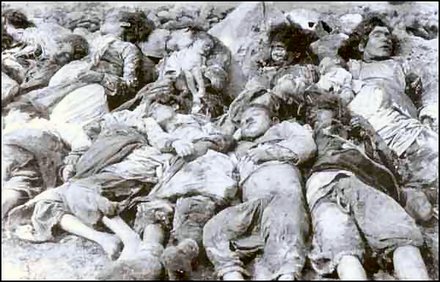
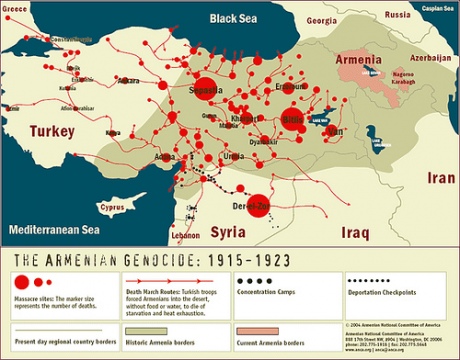
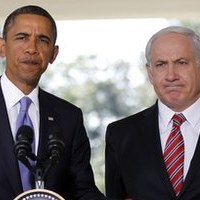
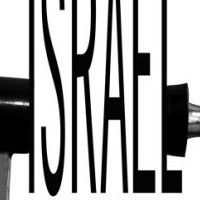
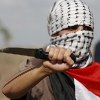

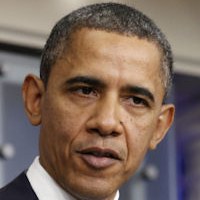




Obama again avoids to use the word genocide in armenian remembrance message #armenia #turkey #genocide #us http://j.mp/ajsB9r
[…] This post was mentioned on Twitter by Crethi Plethi. Crethi Plethi said: Obama again avoids to use the word genocide in armenian remembrance message #armenia #turkey #genocide #us http://j.mp/ajsB9r […]
[…] is. De heer Ramadan moet tot persona non grata worden verklaard in de Verenigde Staten. De Armeense genocide door Turkije moet worden erkend door de Verenigde Staten, en als ik in het congres wordt verkozen […]
See the oustanding documentation AGHET made by Eric Friedler about the truth of the Armenian Genocide, with many proofs, long time hidden in order not to harm Turkey. The documentation was shown twice on two notable German TV stations in April this year and will be shown again in September. This is a very great sign as it’s a German production although it depicts the complicity of Germany (= Turkey’s Ally) in the Armenian Genocide.
PLEASE TAKE SOME TIME, WATCH IT AND SPREAD THE LINK.
––––––––––––––––––––––––––––––––––––––––––––––––––
http://www.youtube.com/view_play_list?p=B4306054D5680A18
––––––––––––––––––––––––––––––––––––––––––––––––––
THANK YOU.